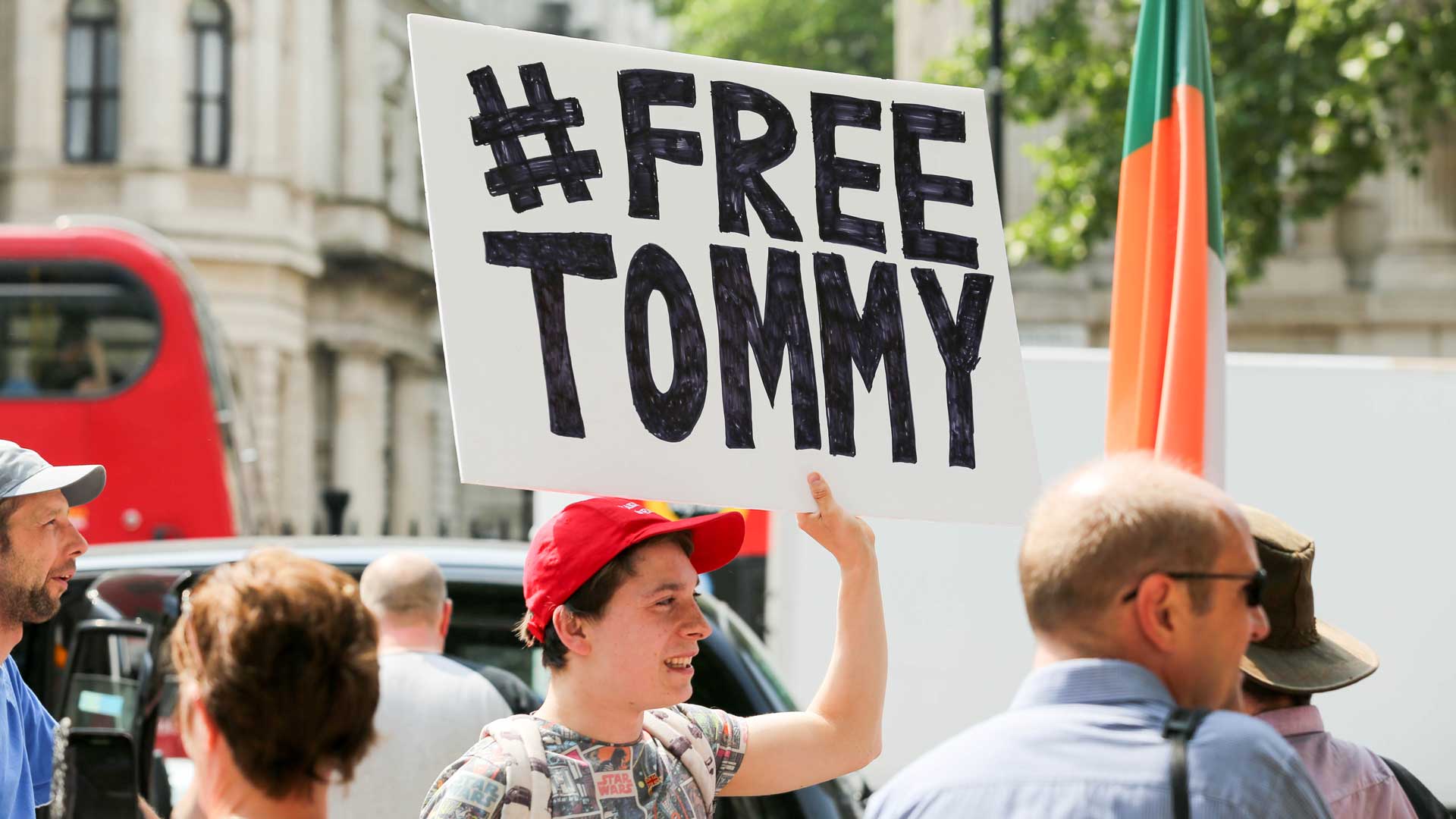The street movement rose to prominence for its Islamophobic, anti-immigration ideology. In the group’s 2011 heyday, EDL rallies attracted thousands of supporters.
But factional infighting killed the group’s momentum. It hasn’t been an official organisation for more than ten years.
Yaxley-Lennon (Robinson) denied EDL involvement in the recent riots, attributing the riots “fed up local residents”.
“Nothing to do with the EDL which closed down over a decade ago,” he posted on X.
But the sentiments that fuelled the EDL’s rise haven’t gone anywhere. The form they take has merely changed, Mulhall said.
“The far-right violence [earlier this month] didn’t have a single individual or organisation that was planning it, but rather, they emerged out of what we call post-organisational networks,” he said.
Advertising helps fund Big Issue’s mission to end poverty
“By that, we mean these vast online networks of thousands of individuals creating or consuming far-right content. They’re not a member of any group, but they’re active in overlapping online spaces.
“It’s like a school of fish – they are individuals, but they move in similar directions.”
Social media enables the rapid spread of far-right disinformation faster than more traditional membership-based groups ever could.
The riots were sparked by this kind of fake news: the suspected killer in the tragic Southport stabbings was incorrectly identified as a Muslim asylum seeker on social media, despite it later emerging me that he was born in Wales of Rwandan Christian origin.
But the truth doesn’t matter when something goes viral. And far-right ‘influencers’ like Yaxley-Lennon thrive in this environment.
“These figureheads ‘make the weather’ for these far-right networks,” Mulhall said. “Although the riots didn’t have a single organiser, there were commonalities between the rallies and the kind of slogans that were being chanted. ‘Free Tommy’, ‘Stop the Boats’, etc. These individuals are all consuming similar online material.”
Advertising helps fund Big Issue’s mission to end poverty
It’s understandable that people want to ban the EDL. But it won’t do anything, Mulhall believes.
He added: “By banning the EDL you’d be banning an organisation that doesn’t exist, it would have zero impact on the people who were rioting, most of whom weren’t members of anything. It’s counterproductive.”
How can we tackle far-right hatred?
Beefing up the Online Safety Act may help stem the virtual tide of racist misinformation.
Prime minister Keir Starmer has indicated that his government will look at sanctions for companies that allow violent messages to spread.
“Let me also say to large social media companies and those who run them,” he said last week, “violent disorder clearly whipped up online: that is also a crime. It’s happening on your premises, and the law must be upheld everywhere.”
But far-right politics doesn’t emerge from a vacuum and sustainable solutions must also address root causes.
Advertising helps fund Big Issue’s mission to end poverty
“The far-right isn’t like a tumour that sits outside our politics, you know, that you can lop off and then you’ll be fine,” says Mulhall. “It’s an infection within our politics… we have a broader climate of hostility.”
Immigration was the top concern for voters (34%) in Ipsos’ monthly issues index for August 2024. That’s the first time since October 2016 that the public has considered it the biggest issue, the pollsters said.
Nigel Farage’s Reform UK received four million votes at the last general election. The recently deposed Conservative government spent billions on its plan to send asylum seekers to Rwanda.
Such policy “incubated” extremist sentiment, a Hope not Hate investigation revealed earlier this year.
HNH’s analysis of 660,000 Telegram messages sent between January 2021 and March 2023 showed serious spikes in “anti-migrant hostility” after 164 government interventions and announcements on the issue.
Poverty and inequality also drive extremism, Mulhall says, fuelling racist “immigrants are taking what is ours” messaging.
Advertising helps fund Big Issue’s mission to end poverty
“We need to start talking about what a genuine social cohesion strategy look like for the UK,” he said.
“It needs to be really far reaching. It’s not just about making sure people of different faiths and backgrounds are sitting down for cups of tea, as nice as that is. It needs to be about addressing the kind of the scarcity which leads to scapegoating. Housing, decent jobs, schools and hospitals.”
Do you have a story to tell or opinions to share about this? Get in touch and tell us more. Big Issue exists to give homeless and marginalised people the opportunity to earn an income. To support our work buy a copy of the magazine or get the app from the App Store or Google Play.









